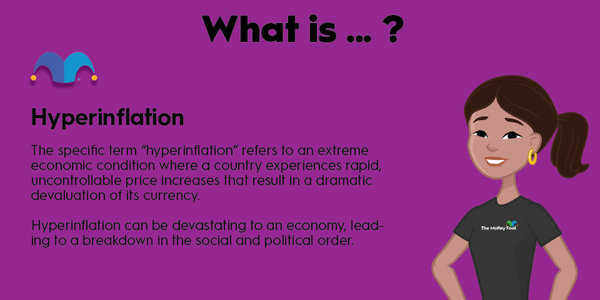What do Warren Buffett, Sam Walton, and Walt Disney have in common besides lots of money? They're the founders of companies that turned into holding companies -- businesses that own a collection of businesses. Here, we'll explain what holding companies do, the types of holding companies, and their advantages and disadvantages and provide an example of a holding company at work.

What is it?
What is a holding company?
Simply put, a holding company is a business that owns other businesses. It doesn't produce goods, provide services, or do anything other than own its subsidiaries.
The subsidiaries owned by the holding company are called operating companies, and they can conduct just about any kind of business you can imagine. They generally have their own management to handle day-to-day operations, but the larger decisions are usually left to the holding company.
Holding companies originated in the mid-19th century when laws governing corporations were loosened, but provisions remained that prevented companies from doing business across state lines.
John D. Rockefeller's Standard Oil Co. took advantage of the looser regulations to create a trust that governed his activities in multiple states. New Jersey passed a law in 1889 that allowed companies based in the Garden State to do business in other jurisdictions, leading to the creation of hundreds of holding companies.
According to the Bureau of Economic Analysis, more than half a company's total income must come from equity investments to be considered a holding company. In other words, a holding company's subsidiaries -- whether wholly or majority-owned -- must provide more than half of the parent company's income.
Types
Types of Holding Companies
There are four basic types of holding companies:
- A pure holding company exists only to own stock in other companies.
- A mixed holding company controls other firms and conducts daily business operations. Often, these companies are described as conglomerates.
- An immediate holding company is owned or controlled by another holding company.
- An intermediate holding company operates both as a holding company and a subsidiary of another company.
Advantages
Advantages of holding companies
Obviously, there are advantages to being a holding company; otherwise, there wouldn't be so many. Here are some of the better-known advantages enjoyed by holding companies:
- Liability: One of the biggest advantages of a holding company is that it compartmentalizes legal liability. For example, if people claimed they had food poisoning after eating at a Dairy Queen franchise, they could try suing the franchise and American Dairy Queen Corp., a subsidiary of Minneapolis-based parent company International Dairy Queen (IDQ) Inc. But they most likely wouldn't have much success trying to sue Berkshire Hathaway (NYSE:BRK.A, NYSE:BRK.B), the holding company that owns IDQ, or any of its subsidiaries, such as Geico or BNSF Railway.
- Investment: Because the subsidiaries of a holding company enjoy legal liability advantages, it's easier to attract investors who would be concerned about the liability faced by a single corporate entity. In addition, holding companies are likely to obtain better financing terms than individual corporations because they're generally in a stronger position than individual operating units.
- Taxes: Holding companies owning at least 80% of all subsidiaries can file consolidated tax returns that cover all subsidiaries. The consolidated tax return can not only offset losses by one subsidiary but also reduce the parent company's tax liability.
Disadvantages
Disadvantages of holding companies
Here are three major disadvantages to holding companies:
- Administration: The extra administration requirements needed to operate a holding company smoothly can increase costs for the parent entity.
- Conflict: Attempts to influence subsidiaries by the parent holding company can lead to conflict among managers at different levels.
- Creation: Creating a holding company -- and its subsidiaries -- can be expensive due to the costs of compliance with different states and statutes.
Related investing topics
Example
Holding company example
Fabled investment house Goldman Sachs (GS 0.69%) became a bank holding company in the wake of the 2007-2009 financial crisis because of concerns that its business model had become a major risk to the global economy.
The switch exposed Goldman to greater regulation but also gave it access to the Federal Reserve System's lending facilities, which were used during the crisis to keep the global economy from collapsing.
Goldman, which is incorporated in Delaware, currently has more than 50 subsidiaries in Brazil, the Netherlands, the U.K., the Cayman Islands, Jersey, Hong Kong, Germany, Japan, Singapore, Luxembourg, Ireland, and the British Virgin Islands.



















